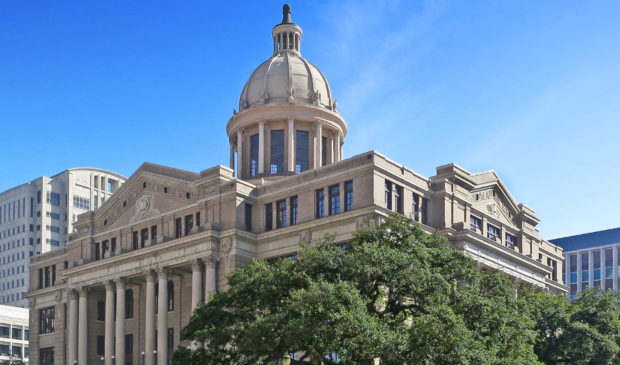Suit over land use rules set for argument at Court of Appeals
Thursday, September 30, 2021 by
Jo Clifton More than a year and a half after Travis County District Judge Jan Soifer ruled in favor of neighborhood plaintiffs and overturned Austin’s efforts to enact a new Land Development Code, the case will be heard by the 14th Court of Appeals in Houston. Lawyers for the city of Austin, plaintiff Frances Acuña and 18 other Austin homeowners received notice that the appeal is set for Nov. 17 before a three-judge panel. Arguments will be heard via Zoom and the public will be able to watch on YouTube.
The Austin Monitor spoke to Mary Ingle, a plaintiff and former president of the Austin Neighborhoods Council, and Greg Anderson, an urbanist who works for Austin Habitat for Humanity who is a former member of the city’s Planning Commission.
Ingle expressed confidence that her group would prevail on appeal and that the city was wasting money on litigation. “The judge was pretty definitive about the ruling …. We’re stuck and the city has to stop playing shenanigans. We would like a seat at the table and we’ve never had one,” she said of the proposed code, which was written by city staff members but reviewed by commissions.
Ingle said she understands that the city is now going to revise the code on a piecemeal basis, which she called “less transparent.” She pointed out that her group was fighting for the right to file a valid petition against wholesale zoning changes. In such cases, nine or 11 Council members would have to vote for the change. Ingle said she had been to almost every hearing on the land use code since 2013, but never felt like she was part of the process. “I’d like to see it have some closure, some fairness,” she said.
Anderson, whose views are pretty much diametrically opposed to Ingle’s, said, “If we want to achieve the goals of Imagine Austin and we truly want to be a sustainable city, then we have no choice but to throw out our 1984 land use code and adopt one that encourages compact and connected development.”
He added, “When we talk to young people, any of our middle- and low-income earners, there’s just so much unnecessary pain being felt because of our lack of housing inventory – and it’s not just affordable housing but availability of housing.”
Pretty much every developer would be willing to build more income-restricted housing if they could, Anderson said, “but instead we have arbitrary height limits and suburban-oriented level compatibility.”
He concluded, “Compatibility is not compatible with the city of Austin and it’s certainly not sustainable. And we can’t afford it any longer. If we’re going to get serious about housing we have to get serious about zoning reform.”
Although Ingle and Anderson disagree about a lot of things, they do agree that they would like to see a final decision from the court in the near future.
That seems pretty unlikely given the slow pace of legal proceedings. In November 2022, Austin voters will select a new mayor and several new Council members. Attorney Bill Aleshire, who has considerable experience in legal appeals, told the Monitor it’s not unreasonable to assume that the next mayor and City Council will receive the opinion and make decisions about what to do next.
Photo made available through a Creative Commons license.
The Austin Monitor’s work is made possible by donations from the community. Though our reporting covers donors from time to time, we are careful to keep business and editorial efforts separate while maintaining transparency. A complete list of donors is available here, and our code of ethics is explained here.
You're a community leader
And we’re honored you look to us for serious, in-depth news. You know a strong community needs local and dedicated watchdog reporting. We’re here for you and that won’t change. Now will you take the powerful next step and support our nonprofit news organization?









